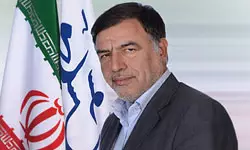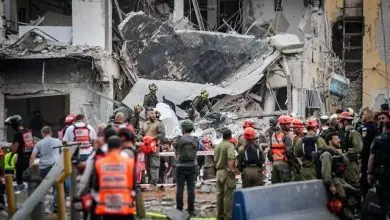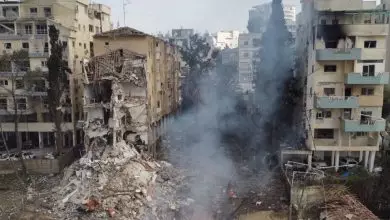Iranian MP: Enemies’ Plots to Blow Up Fordo N. Site Foiled

 Iran’s nuclear scientists and experts have managed to thwart enemies’ plots to infiltrate and blow up the country’s newly constructed Fordo uranium enrichment facility near the Central city of Qom, a senior Iranian legislator said.
Iran’s nuclear scientists and experts have managed to thwart enemies’ plots to infiltrate and blow up the country’s newly constructed Fordo uranium enrichment facility near the Central city of Qom, a senior Iranian legislator said.
“The enemies intended to repeat a Chernobyl-like disaster through selling (booby-trapped) equipment and blowing up the centrifuges at the Fordo site, but their plot was discovered and foiled by the Iranian scientists’ wisdom and tact,” member of the parliament’s National Security and Foreign Policy Commission Abbas Ali Mansouri told FNA on Saturday.
He underlined that since the arrogant powers cannot bear the Islamic Republic of Iran’s rapid progress and flourishing, they spare no inhuman acts to prevent the country’s progress, although to no avail.
In relevant remarks, Iran’s nuclear chief, Fereidoun Abbasi, said Monday that separate attacks on Iran’s centrifuges – through tiny explosives meant to disable key parts of the machines – were discovered before the blasts could go off on timers.
Abbasi also told the UN nuclear agency in Vienna that “terrorists and saboteurs” might have infiltrated the International Atomic Energy Agency, after the watchdog’s inspectors arrived at the Fordo underground enrichment facility shortly after power lines were blown up through sabotage on Aug. 17.
Iran has several times complained that the IAEA is sending spies in the guise of inspectors to collect information about its nuclear activities, pointing to leaks of information by inspectors to US and other officials.
Five nuclear scientists and researchers have been killed in Iran since 2010. All the Iranian scientists have been assassinated by Israel’s Mossad spy agency as well as the CIA and Britain’s MI-6, according to Iranian intelligence ministry.
Boroujerdi said repeated leaks of nuclear information to Iran’s adversaries by the IAEA would justify a cut of Tehran’s ties with the UN nuclear watchdog agency.
“Iran has the right to cut its cooperation with the IAEA should such violations continue,” he said.
Over the past few years Iran has been the target of numerous cyber attacks carried out to disrupt the country’s industrial systems, but Iranian experts have managed to find and defuse such highly dangerous plots.
In May, Iran announced that its cyber experts detected and contained a complicated Israeli spy virus known as “Flame”.
The head of Information Technology Organization of Iran, Ali Hakim Javadi, said earlier that the country’s experts had managed to produce anti-virus software that could spot and remove the detected computer virus “Flame”.
Javadi said that the indigenous anti-virus software had been capable of detecting the virus and cleaning up the infected computers.
He said that the malware was different from other viruses and was more destructive than Stuxnet.
On April 24, an Iranian oil official said the country’s experts had contained cyber attacks against the country’s Oil Ministry.
Hamdollah Mohammadnejad, deputy minister in engineering affairs, said “Recently, a few number of National Iranian Oil Company (NIOC) servers were attacked by a malware, but the cyber security experts of oil industry contained it immediately.”
In October 2010, Iranian Intelligence Minister Heidar Moslehi announced that Iran had detected and thwarted a virus aimed at infecting the country’s nuclear plant system.
Iran said the computer worm, Stuxnet, had infected some IP addresses in Iran, including the personal computers of the staff at the country’s first nuclear power plant in Bushehr. Tehran said Israel and the US were behind the infection of its industrial sites.







